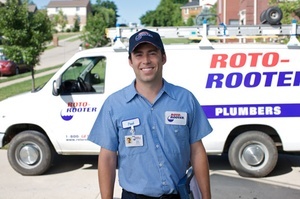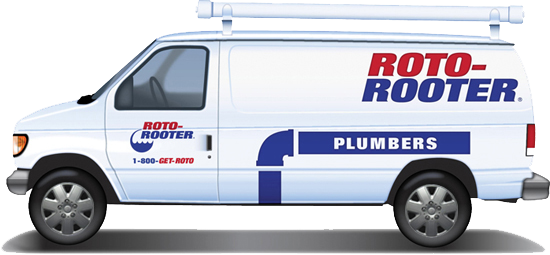General Maintenance for Your Home or Business Plumbing System
 You probably don’t think much about the network of water and sewer pipes inside your walls that deliver your hot and cold water — and eliminate waste — on demand.
You probably don’t think much about the network of water and sewer pipes inside your walls that deliver your hot and cold water — and eliminate waste — on demand.
But giving your plumbing a little regular attention and general maintenance can prolong its life, prevent leaks, and avoid costly repairs. Here’s how to care for the pipes in your house.
Avoid chemical drain-clearing products
Clogged drains are the most common home or business plumbing problem, and chemical drain openers are available to clear them. But these products sometimes do more harm than good. They can actually erode cast-iron drainpipes.
They typically don’t remove the entire clog, the problem is likely to recur, causing you to use the chemicals repeatedly – or to call Roto-Rooter for service. “Each time used, chemical drain openers eat away at the pipes, a little more.” says John Losenicky, Roto-Rooter Master Plumber. “Soon, you’re going to get leaks.”
Better to hire a plumber like Roto-Rooter to cable (aka; snake) the drain (usually $75 to $130) and completely remove the chunk of hair or grease that’s plugging the line.
Prevent future clogging
Clogs aren’t just nuisances. Backed-up water puts added pressure on your wastepipes, stressing them and shortening their lifespan. So avoid plug-ups by watching what goes down your drains. That means keeping food scraps out of kitchen drains, hair out of bathroom drains, and anything but sewage and toilet paper out of toilets. If using a septic system, be sure to only use septic safe toilet paper. This is paper made to dissolve inside the septic tank.
Install screens over drains in showers and tubs, and pull out what hair you can every few weeks to prevent buildups. Scrape food into the trash before doing dishes—even if you have a garbage disposal—and never put liquid grease down the drain; pour it into a sealable container to put in the garbage after it cools. 3 – Important facts for use of your garbage disposal; 1) Be aware of what you put in the disposal. 2) If you need to use your disposal, always run a high volume of cold water with the material(s). 3) If you need to your disposal, only place small amounts of food in at a time. Grease & Oil. Yes, even though it’s food-grade oil for use in cooking, it’s not easily digestible by your garbage disposal. Grease tends to congeal and slime up the inside of the garbage disposal, hampering its overall effectiveness. Not to mention the fact that grease can wreak havoc on your pipes! As a precaution, any time you’re sending food scraps down the drain that have a greasy residue (from butters and oils), always run a high volume of cold water at the same time (as mentioned above).
The worst things, bar none, to put in a garbage disposal? Potato peels. And cooked rice. Both, but especially potato peels turn into glue in your drain, as the starch gets ground up, sitting in your pipes to harden or just cause a blockage if not enough water pushes it all the way to the water treatment plant. A little bit, a little at a time may be fine, but that Holiday dinner potato preparation could become a major problem. Beware!!!
Flour – Similar to potatoes, flour becomes glue-like when wet. It then thickens and hardens when dry. This can wreak havoc on your garbage disposal.
“Grease is only liquid when it’s hot,” Losenicky says. “When you pour it down the drain, it cools and becomes solid. Do that enough, and just like a clogged artery, your drains won’t work anymore.”
Buy Pipe-Defense® from Roto-Rooter Des Moines to maintain your plumbing lines stay open. Pipe-Defense® is a very effective drain maintainer made of live bacteria. Simply add Pipe-Defense® to each drain one night per month. While you sleep, the bacteria eat any food materials attached to plumbing walls. Highly concentrated, sold in one gallon bottles that can last up to one year.
Reduce the pressure
As nice as high water pressure can be when you’re taking a shower it stresses your pipes, increasing the likelihood of a leak. “That drastically reduces the life of your plumbing,” says Roto-Rooter Des Moines, Master Plumber John Losenicky. “It makes your pipe joints, faucets, and appliance valves work harder.”
You can measure your water pressure with a hose bib gauge, available at the hardware store for under $10. Attach it to an outside spigot and open the line. Normal pressure will register between 40 and 85 psi. If it’s above that range, consider hiring Roto-Rooter to install a pressure reducer valve kit.
By the way, adding a low-flow shower head or faucet won’t affect pressure in the pipes. It only affects the amount of water coming out of the shower head itself. Call a plumber from Roto-Rooter if you are looking to reduce your water volume by adding a new shower head or faucet.
Soften the water
If your water has a high mineral content—known as hard water—it can shorten your plumbing’s lifespan. Those naturally occurring minerals, usually magnesium or calcium, build up inside your pipes and restrict flow, increasing the pressure. Plus, they can corrode joints and fittings. Although hard water can occur anywhere, it’s most common in the Midwest, Southwest and parts of the Northeast. The only way to effectively deal with hard water is by installing a water softener. You’ll need a plumber from Roto-Rooter to install a traditional, sodium-based water softener, for $500 to $1,000. Electronic units start below $200, and because the pipes don’t have to be opened up, you can install one yourself. Keep in mind, though, that you’ll need an electrical outlet nearby to power the unit.
Keep your sewer lines or septic tank clear
If you have a municipal or city sewer, hire a plumber like Roto-Rooter to cable (aka; snake) your city main sewage line through a clean-out every year. This will cost $100 to $150, and will remove tree roots that inevitably work their way into these pipes—leading to messy sewage backups. If you have a septic system, get the tank pumped out every three to five years, for $200 +, depending on your location.
Seven Things to Never Flush Down the Toilet (get these items to the trash)
1. Diapers
2. Tampons and Sanitary Napkins
3. Cigarette Butts
4. Floss
5. Large Wipes (aka Baby Wipes)
6. Toilet Bowl Scrub Pads
7. Dryer Sheets
Other ways to avoid trouble
- Learn where your home’s main water shut off valve is located—so if there’s ever a leak, you can go straight there and quickly turn off the water to the entire house. Remove hoses from outdoor spigots in winter to prevent frozen water from cracking the pipes and causing a flood.
- Add pipe insulation to the plumbing in cold parts of your house—such as garages, basements, and crawl spaces—to avoid frozen pipes (and to shorten the wait for hot water).
- Never use an exposed pipe as a hanger rod for laundry. Doing so can loosen joints and fasteners. Fix problems quickly. Even small leaks can make pipes corrode more quickly, and cause significant water damage or mold.





















